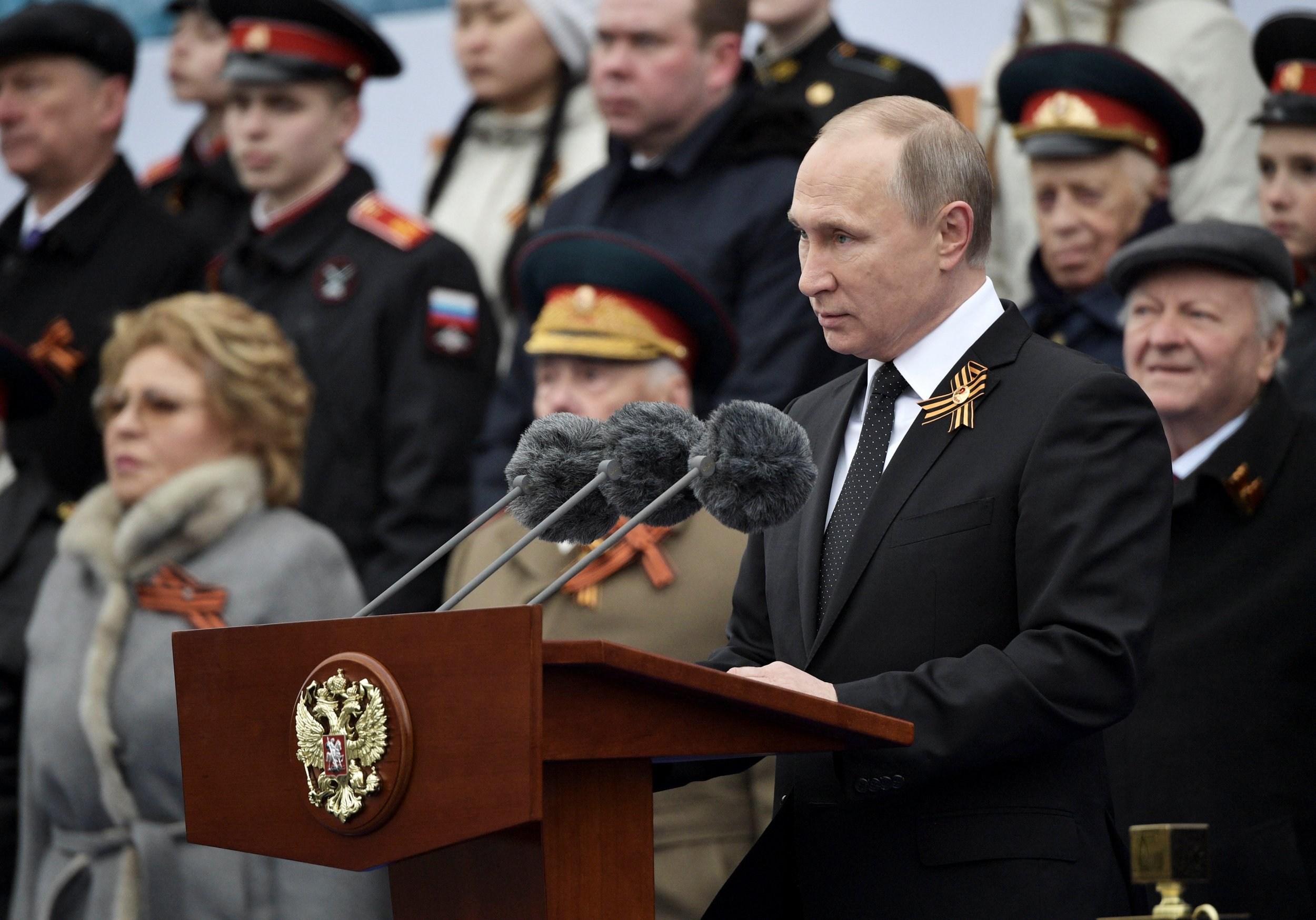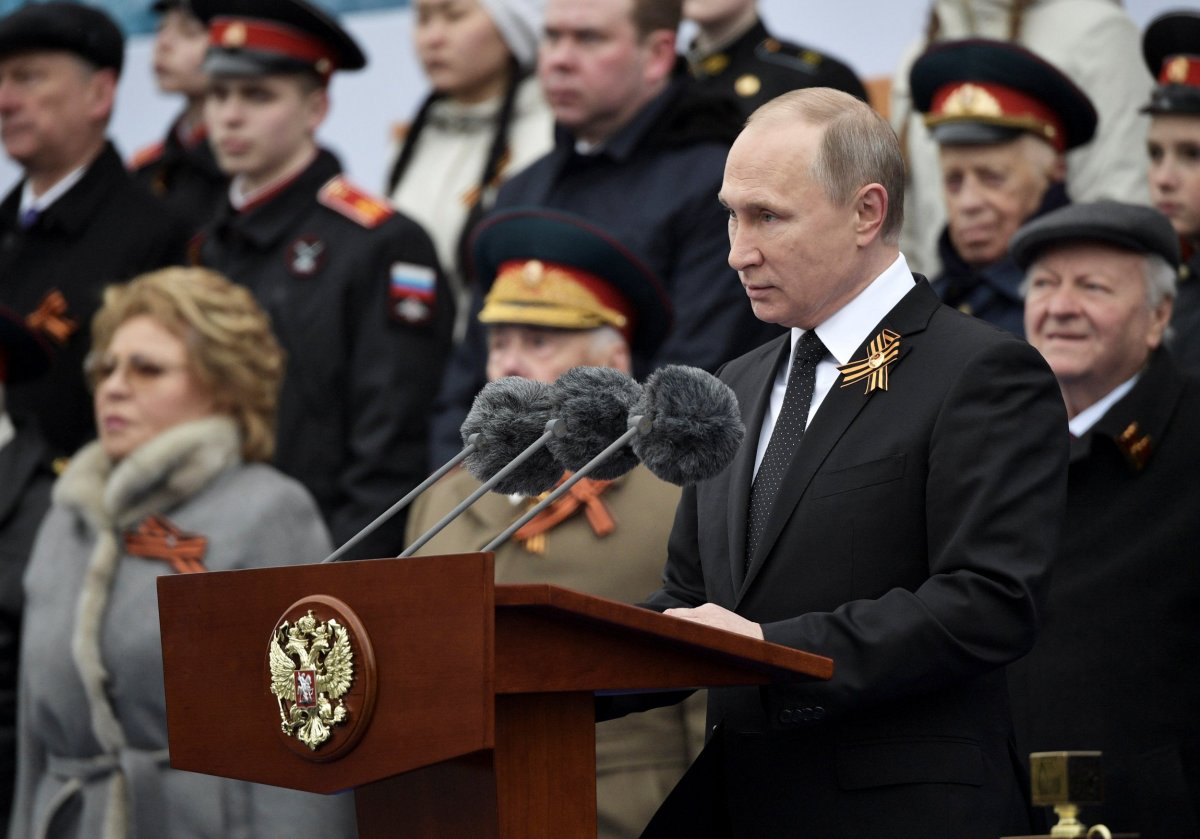
Russian President Vladimir Putin declared Russian unbeatable in the face of its past, current and future adversaries during a speech marking the nation's victory over the forces of Nazi Germany in 1945.
Putin addressed the crowd Tuesday in Moscow's Red Square amid a massive parade celebrating the 72nd anniversary of the former Soviet Union's triumph against Hitler's forces during World War II, or as it's known in Russia, the Great Patriotic War. The Russian leader, whose own family suffered greatly at the hands of the Nazis, praised the efforts of the Soviet military, which endured significantly more losses than all other allied militaries combined, in fending off a Nazi invasion in 1941 and beating back German forces to invade Berlin. The offensive ultimately concluded in Europe the world's deadliest conflict. Now, in the face of current geopolitical tensions, Putin has advanced the idea of Russia as unconquerable.
Related: Victory Day: Why is May 9 so important to Russia?
"The Soviet Union faced the most powerful assaults by the Nazis, but there is no force, and there will be no force, that could conquer our people," Putin said, according to United Press International.

Following World War II, wartime allies the U.S. and the Soviet Union quickly resumed feuding over opposing ideologies, and Putin's speech comes amid a new international rivalry. The two nations have backed different factions in Syria's civil war since its outbreak in 2011, and both former President Barack Obama and President Donald Trump have censured Moscow for its 2014 annexation of the Crimean Peninsula during political upheaval in Ukraine, which Russia said was a threat to the local Russian population in the neighboring region.
The move sparked an arms race between Russia and the Western military alliance NATO, to which the U.S. is by far the largest financial contributor, and both sides have sent thousands of troops and deployed missile defenses across borders in Europe.
Putin said that the past showed how necessary it was for Russian to expand its defense capabilities. Yet in spite of mounting tensions between Russia and the West, the Russian leader said the current generation owed to those who fought before the prevention of another global war and should combat the rise of radical ideologies that threaten to destabilize peace among nations.
"Consolidation of the entire international community is needed to effectively fight terrorism, extremism, neo-Nazism and other threats," Putin said, according to the state-run Tass news agency.
"We are open for such cooperation. Russia will always be on the side of the world's forces, on the side of those who choose the road of equitable partnership, who rejects wars as being alien to the very essence of life and the nature of humans," he added.
Russia's military might has been assessed by experts as second only to that of the U.S. Of the nine nations believed to maintain a nuclear weapons arsenal, Moscow's stockpile is believed to be the largest in the world. While Russia and the U.S. have so far avoided direct conflict, addressing disagreements through talks, Trump's decision to launch cruise missiles at an airbase belonging to troops loyal to Syrian President Bashar al-Assad, a longtime Russian ally, after a chemical weapons attack has led to a falling out between Putin and Trump. The U.S. president had previously praised Russia's role in Syria.
Uncommon Knowledge
Newsweek is committed to challenging conventional wisdom and finding connections in the search for common ground.
Newsweek is committed to challenging conventional wisdom and finding connections in the search for common ground.
About the writer
Based in his hometown of Staten Island, New York City, Tom O'Connor is an award-winning Senior Writer of Foreign Policy ... Read more
To read how Newsweek uses AI as a newsroom tool, Click here.








